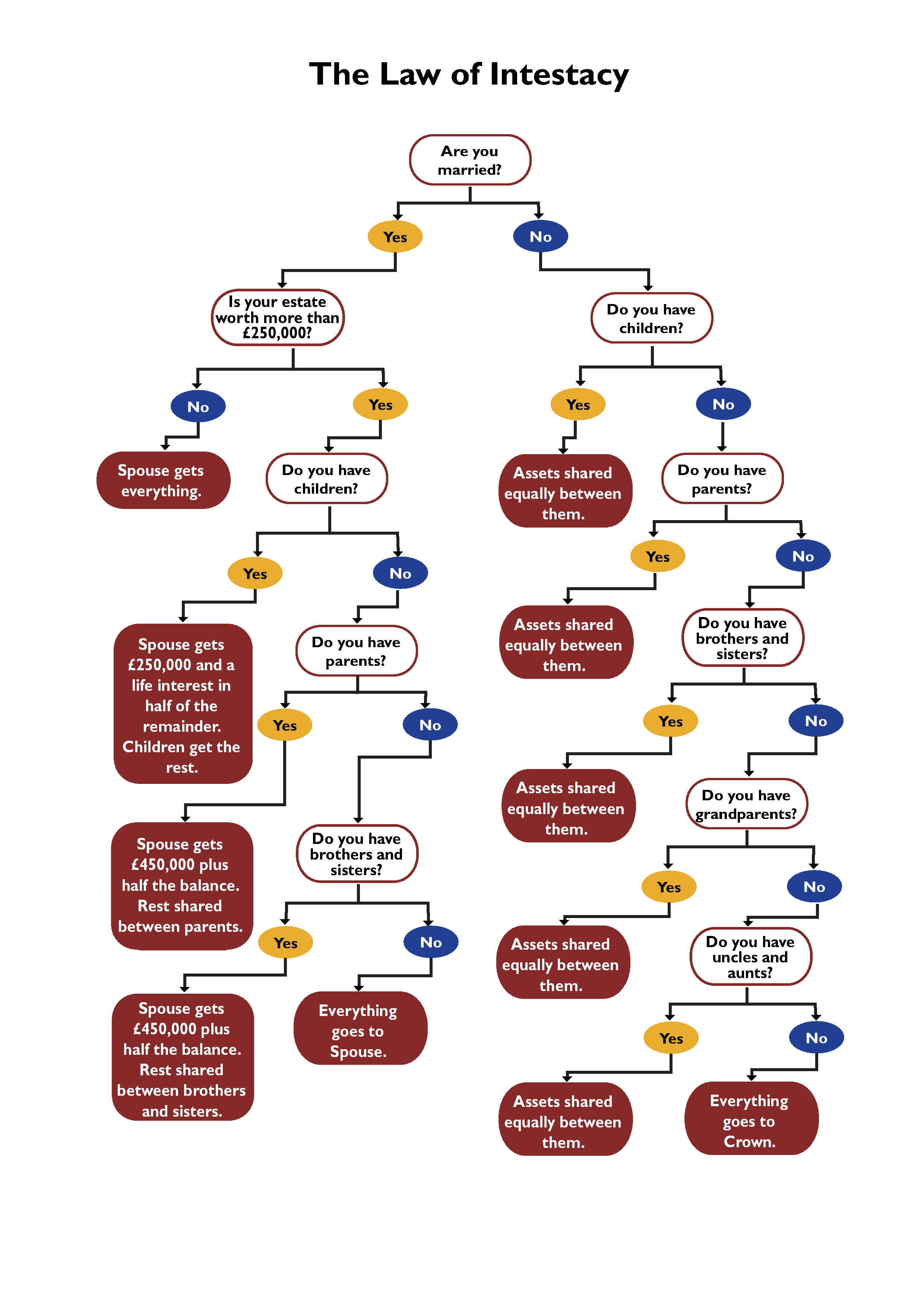
The Law of Intestancy Explained
6th June 2013 : By Jason Cherrington
I am often blogging about why it is important to make a Will, one of the statements I make to back this up is that if you do not have a legal Will in place then your estate will be subject to the Law of Intestacy, in short I explain that this could mean HMRC (the Crown) benefit from your estate instead of your loved ones. In today's blog I am putting more meat on the bones regarding the law of intestacy in England and Wales, so that you can see in detail, exactly what would happen should you not have a Will in place at the time of your death.
If a person dies without leaving a legal Will, the law says their estate, which includes all property and assets must be shared out according to certain rules. These are called the rules of intestacy. If you die without leaving a Will you die "intestate". This means that only married couples or civil partners and close relatives can inherit under the rules of intestacy.
If you die without making a Will or the Will is not legally valid, for example it has been incorrectly signed or witnessed, then the rules of intestacy will decide how your estate is to be shared out.
Below you will find a flow chart that takes you through in detail what happens step by step, I would highly recommend you make a Will if you have not done so already, if you do have a Will in place have a look at it and double check that it is legal and valid.
If you are in any doubt talk to your Will Writer or Solicitor to double check all is as it should be, especially if you have had recent changes in your life, such as marriage, divorce or the birth of a child. Often these professionals can offer you an initial discussion free of charge so that you can put your mind at rest that your Will is valid and providing for your loved ones.



